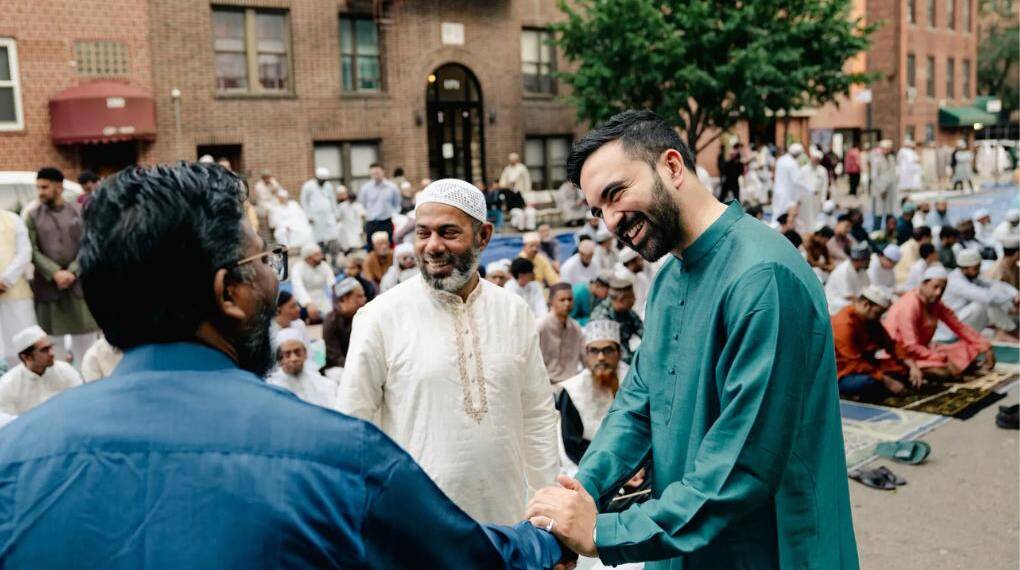In recent years, Western democracies have seen a notable increase in the number of Muslim politicians entering public office. While some hail this as a sign of progress and diversity, many right-leaning observers are raising concerns about the potential impact on traditional Western values and the political landscape.
West’s Cultural Identity Under Threat Amidst the Rising Muslim Political Power
The 2025 Canadian federal election 13 Muslim Members of Parliament were elected, up from 11 in the previous term, with another 21 candidates finishing as strong runners-up. This surge is seen as a direct result of heavily influenced by global events, especially the crisis in Palestine. Muslim organizations across Canada rallied voters around issues of justice and equity, making Palestine a central theme in debates and endorsements.
In the United States, Muslim political engagement has also grown. As of 2025, five Muslims have served in Congress, with figures like Ilhan Omar and Rashida Tlaib becoming prominent voices on issues ranging from civil rights to foreign policy.
In New York City, Zohran Mamdani’s success in the Democratic mayoral primary was propelled by a broad coalition that included Muslim voters, underlining the community’s growing influence at the local level.
Across Europe, Muslim politicians have gained visibility. Sadiq Khan has served as the mayor of London since 2016, while Rachida Dati became France’s justice minister and now sits in the European Parliament.
In the Netherlands, Ahmed Aboutaleb’s tenure as mayor of Rotterdam and Joram van Klaveren’s conversion from anti-Islam activism to Islam itself highlight the increasing role of Muslims in European politics.
Also Read: ‘Some were extremely hostile’: how Dutch far-right figure turned to Islam
A Shift Away from Conservative Principles
Conservative parties across Europe and North America have long championed principles such as national identity, cultural heritage, and the preservation of Judeo-Christian values.
The rise of politicians who openly prioritize their religious or cultural backgrounds has led some to question whether these core principles are being diluted in the name of multiculturalism.
Many Muslim politicians, particularly in left-leaning parties, have been vocal critics of policies that emphasize border security, assimilation, and strong national identity.
Instead, their platforms often focus on expanding immigration, promoting policies that accommodate religious practices, and challenging established norms around gender, education, and free speech.
Many conservates believes that this can undermine the social cohesion and shared values that have historically united Western societies.
Infiltration or Representation? Fears Grow Over Muslim Politicians’ Community Loyalties
There is growing concern among right-wing voters that some Muslim politicians are more interested in advancing the interests of their own communities than representing the broader population.
Issues such as the push for religious accommodations in schools, opposition to certain foreign policy positions (such as support for Israel), and advocacy for changes to national traditions have fueled debates about loyalty and integration.
The Importance of Upholding Western Values
Supporters of right-wing politics argue that Western nations must remain vigilant in defending their cultural foundations and not allow identity politics to overshadow the common good. They believe that elected officials should prioritize the interests of their country as a whole, rather than focusing on narrow group identities or religious affiliations.
While diversity in politics can bring new perspectives, it is essential for all politicians to respect and uphold the values that have made Western democracies strong and cohesive. The rise of Muslim politicians, if not balanced with a commitment to these values, risks creating divisions and eroding the principles that define Western civilization.
These politicians, are not simply advocating for religious freedom or cultural accommodation, but are actively working to introduce aspects of Sharia into Western societies. This trend is seen as fundamentally incompatible with Western values such as secularism, individual rights, and gender equality, and raises questions about the long-term impact on national identity and social cohesion.
The push to integrate Sharia-based practices, even informally, is viewed by right-leaning observers as a direct challenge to the legal and cultural foundations that underpin Western democracies. Because of this, a rift has emerged between Muslim politicians and the local right-wing conservatives of these Western countries, deepening divisions over the future direction.
As a result, a rift has emerged and intensified between Muslim politicians and local right-wing conservatives in these Western countries, further widening societal divisions and fuelling debates over the nation’s cultural identity.








